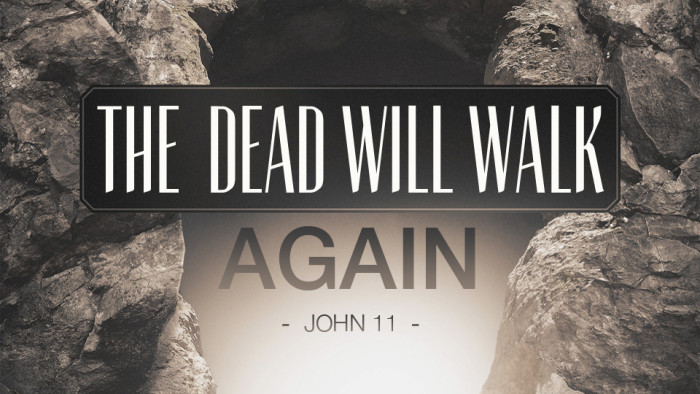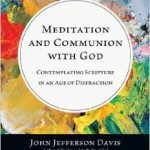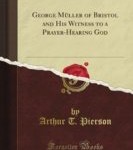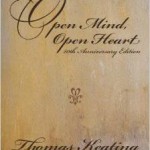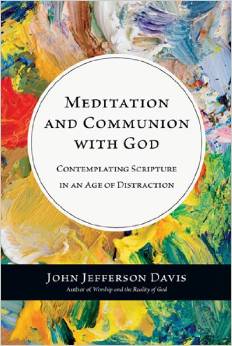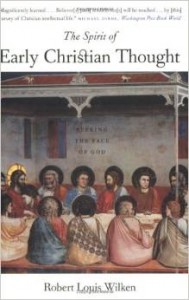 The Christian faith is an intellectual one at its core. From God’s formation of an old covenant nation to His creation of a new covenant church one command claims to be the greatest of all: “You shall love the LORD your God with all your heart and with all your soul and with all your mind” (Matt. 22:37 emphasis added; cf. Deut. 6:5). With such unrelenting clarity weaving its way throughout redemptive history it ought not surprise us to find a thriving intellectual life permeated the early Christian church.
The Christian faith is an intellectual one at its core. From God’s formation of an old covenant nation to His creation of a new covenant church one command claims to be the greatest of all: “You shall love the LORD your God with all your heart and with all your soul and with all your mind” (Matt. 22:37 emphasis added; cf. Deut. 6:5). With such unrelenting clarity weaving its way throughout redemptive history it ought not surprise us to find a thriving intellectual life permeated the early Christian church.
In The Spirit of Early Christian Thought: Seeking the Face of God Robert Louis Wilken, Emeritus William R. Kenan, Jr. Professor of the History of Christianity at the University of Virginia, recounts the intellectual heart of early Christianity. “It is the purpose of this book,” Wilken says, “to depict the pattern of Christian thinking as it took shape in the formative centuries of the church’s history.” Wilken believes “the study of early Christian thought has been too preoccupied with ideas.” Therefore, rather than assessing the development of Christian ideas (the work of historical theology) Wilken unfolds how exactly Christians “thought about the things they believed.”
In the nineteenth century Adolph von Harnack’s proposes that early Christian thinking was little more than a hellenization of Christianity. Wilken says this thesis “has outlived its usefulness” and a better expression of early Christian thought would be the “Christianization of Hellenism.” The work of early Christianity was thus not one of developing a culture-shaped truth, but one aiming at a truth-shaped culture. This intellectual labor, Wilken asserts, is one ultimately aimed at seeking the face of God (Ps. 105:4)—a passage Wilken believes best “captures the spirit of early Christian thinking.”
Summary
The book’s short compass—just over three hundred pages—means Wilken has limited space to set forth “the things Christians cared most about.” He thus selects representative figures for each theme on which he concentrates. Although he pulls from numerous influential patristic figures, four tower above all others in his work: Origen in the third century, Gregory of Nyssa in the fourth, Augustine in the fifth, and Maximus the Confessor in the seventh. According to Wilken “these four stand out as the most rewarding, the most profound, and the most enduring.”
The book consists of twelve chapters, which can be grouped into five sections.
The Foundations (1-3)
The first three chapters set the course for all that follows by focusing on Christianity’s foundations: how God is revealed through the death of His son (ch. 1), how God is worshipped in the liturgy, prayers, and sacraments (ch. 2), and how God has—astonishingly—spoken to His people through His word (ch. 3).
The Teachings (4-6)
Wilken builds on these foundations in the next three chapters by considering the forging of a Trinitarian doctrine (ch. 4), the depicting of Christ’s word—particularly Maximus the Confessor’s elucidation of Christ’s agony (ch. 5), and the creation of human beings as participants in the life and knowledge of their Creator (ch. 6).
The Believer (7-8)
With those foundational teachings in place Wilken moves on to two chapters addresses the life of the believer. Channeling Augustine in both chapters Wilken first argues that God is only known in faith and love (ch. 7). Secondly, he comments on the role of the church in a just society and that “life directed toward God is always social” (ch. 8).
The Stuff (9-10)
The early church was one in which intellectual engagement led to tangible realities in the church’s life. Wilken brilliantly informs us of “a significant new development in Christian intellectual life”: poetry (ch. 9). The poetry of Prudentius gives a glimpse also into the burgeoning power of hymnody in the church. The physical matter of icons is Wilken takes up next, arguing for a robust understanding of the relationship between material and spiritual realities (ch. 10).
The Goal (11-12)
Keen to show how “the Christian intellectual tradition is an exercise in thinking about the God who is known and seeking the One who is loved,” Wilken rounds down his discourse with a focus on living holiness. The goal of the Christian life was to be like Christ, a likeness revealed through biblical virtues such as patience and humility (ch. 11). The moral life of Christianity grows out of its spiritual life, a life of holy passion and affections—in other words, a life of love (ch. 12).
Evaluation
Wilken believes the “energy, the vitality, the imaginative power of Christian thought stems from within, from the person of Christ, the Bible, Christian worship, the life of the church.” It must be said that Wilken’s pen proves to be a worthy vessel for his thesis. Joseph Mueller makes a similar point when he concludes, “Some of the attractiveness of [Wilken’s] demonstration comes from the complete fit between his style and that of early Christian thought.” Energetic, imaginative, and powerful prose flows on every page. One can easily get caught up in the sweeping, moving cadence of his instruction. Wilken’s literary skill alone makes The Spirit of Early Christian Thought a valuable contribution. If only all scholarly work could be so well written. Yet, scholarly works do not rise and fall on their literary merits, they do so on proving their point(s). Thus, we must ask, “Does Wilken effectively prove the early Christian intellectual tradition is best expressed as the Christianization of Hellenism? Did the early church thinkers ultimately direct their work toward seeking the face of God?” The one word answer to each question is the same: “Largely.”
Wilken’s labor is both helped and harmed by unvarnished sympathy for his subjects. Angela Russell Christman, in her review of the same book, says, “The subject of this book . . . Wilken portrays so . . . sympathetically for his readers.” Wilken even seems to acknowledge this sympathy when he says, “One of the most distinctive features of Christian intellectual life is a kind of quiet confidence in the faithfulness and integrity of those who have gone before.” This quiet confidence is helpful in so far as it allows Wilken to warmly invite readers to sit at the feet of and glean from spiritual giants of a previous era. Yet, it gets in the way of substantive critical interaction with the tradition itself. Wilken’s portrayal can wade into the always-treacherous waters of hagiography. This point is well made by John Morrison who, writing in The Journal of the Evangelical Theological Society, says, “The Fathers . . . are made to be wholly charming in life and thought; the warts are all but gone. The few that remain are turned into beauty marks.” Furthermore, “Wilken is . . . [presenting] unapologetically the very best face of early Christianity.”
This is why I answer the question of whether or not Wilken achieves his aims as, “Largely.” Did the Christian intellectual tradition forcefully influence the Hellenized world? No doubt. Yet, the street moves both ways. Did not prevailing philosophies of the day influence creedal and confessional statements in the early church? Absolutely. Did the early Christian intellectuals seek the face of God? Many did. But, as Morrison remarks, “Wilken also quickly excuses, defends, or gives fresh ‘spin’ to the wrongs or misdirections of the Fathers.”
Wilken is able to prove his thesis by choosing the shining stars of the tradition, but shining starts they all were not.
Conclusion
While Wilken’s work might be better served to come from a sympathetically critical pen, The Spirit of Early Christian Thought is still a magnificent achievement. Wilken’s synthesis is compelling and convicting; it will lead many to greater historical awareness and present earnestness in seeking the face of God.


